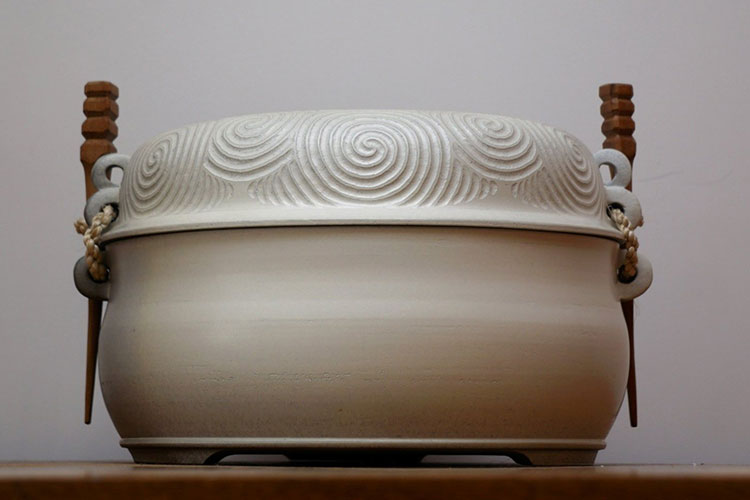Kaiako Bachelor-Raranga, Adrienne Spratt shows how to safely remove harakeke from a boiling pot during the preparation process.
Te Wānanga o Aotearoa believes changes to the way our raranga programmes are delivered will result in independent, safety-conscious and self-directed learners.
The changes - which affect all noho marae raranga programmes - are because of new health and safety regulations and compliance issues around the boiling units, LPG gas bottles and burners used to boil and dye harakeke and other resources that may include—kiekie, kuta and ti kouka.
WHAT YOU NEED TO KNOW:
Raranga boiling units used in our raranga programmes for boiling and dyeing harakeke and other resources have been decommissioned throughout Aotearoa.
Tauira are receiving video and print instruction and an allowance for tools and equipment to prepare their harakeke and other resources at home.
WHY?
Because the units are no longer compliant with health and safety regulations.
Tauira will receive a how-to video about this particular part of the process, a $95 allowance for the necessary tools, safety gear and equipment and further support if needed.
Kaiārahi Raranga Gloria Taituha says encouraging tauria to do this independently and safely will allow kaiako to focus more on tauira needs during classes.
"This will allow more time on the development of technical skills, practices and rangahau - all of which are required to complete a chosen kaupapa,” says Gloria.
"What we are trying to do is encourage our tauira to do that mahi at home because the raranga noho usually start about 6pm on a Friday, then on Saturday morning they go and harvest and if they’re boiling and dyeing that’s pretty much all of Saturday gone and they finish at 2pm on a Sunday."
"This doesn’t happen at every noho but a lot of tauira could instead be doing their preparation and all of their experimental work at home. There they can go through their trial and error stages with their own samples and it will also mean they will receive much more quality time and instruction from their kaiako."
Gloria says while the changes are about making tauira more independent thinkers and workers, this self-directed aspect of the raranga programmes doesn’t mean tauira are on their own.
"We are by no means cutting tauira off at the knees. With the decommission of the boiling units we have provided extra putea in the Tauira Kete to purchase boiling equipment of their choice within the budget allocated. This addition to the tool box budget is for Level 4 tauira only. Most importantly our tauira have the ability to be independent thinkers."
"They will also receive an instructional video and literature about how to safely prepare the harakeke or other resouces at home."
The instructional video can be found here.
ARE YOU PREPARING HARAKEKE OR OTHER RESOURCES AT HOME?
Here’s what you need to know to stay safe
- You should use an electric appliance instead of gas burners for the boiling process in a well-ventilated area that’s free from clutter on a concrete or dirt surface.
- Before you use any electric appliance, visually check the cords for any cuts or damage to the cord. Run your hand down its length to feel for cracks or damage. If you find a problem, don’t use the equipment until the cord is professionally repaired or replaced.
- Ensure that you plug your electric appliance into a socket outlet RCD (Residual Current Device) or portable RCD extension cord. Place the cord so that it is away from your walking path to avoid tripping and spilling of water.
- Wear a PVC apron, have closed shoes and heat-proof long-sleeve gloves and your hair should be tied.
- Use tongs or a stick to help immerse and flip the flax.
- Don't carry water, cold or hot. Place the pot on the element, and use the hose or jugs to bring water to the pot and be careful of steam.
- Flax is boiled/ dyed for about 2 minutes, then placed in cold water. It’s recommended that you wait for the water to cool before it’s disposed of.




































